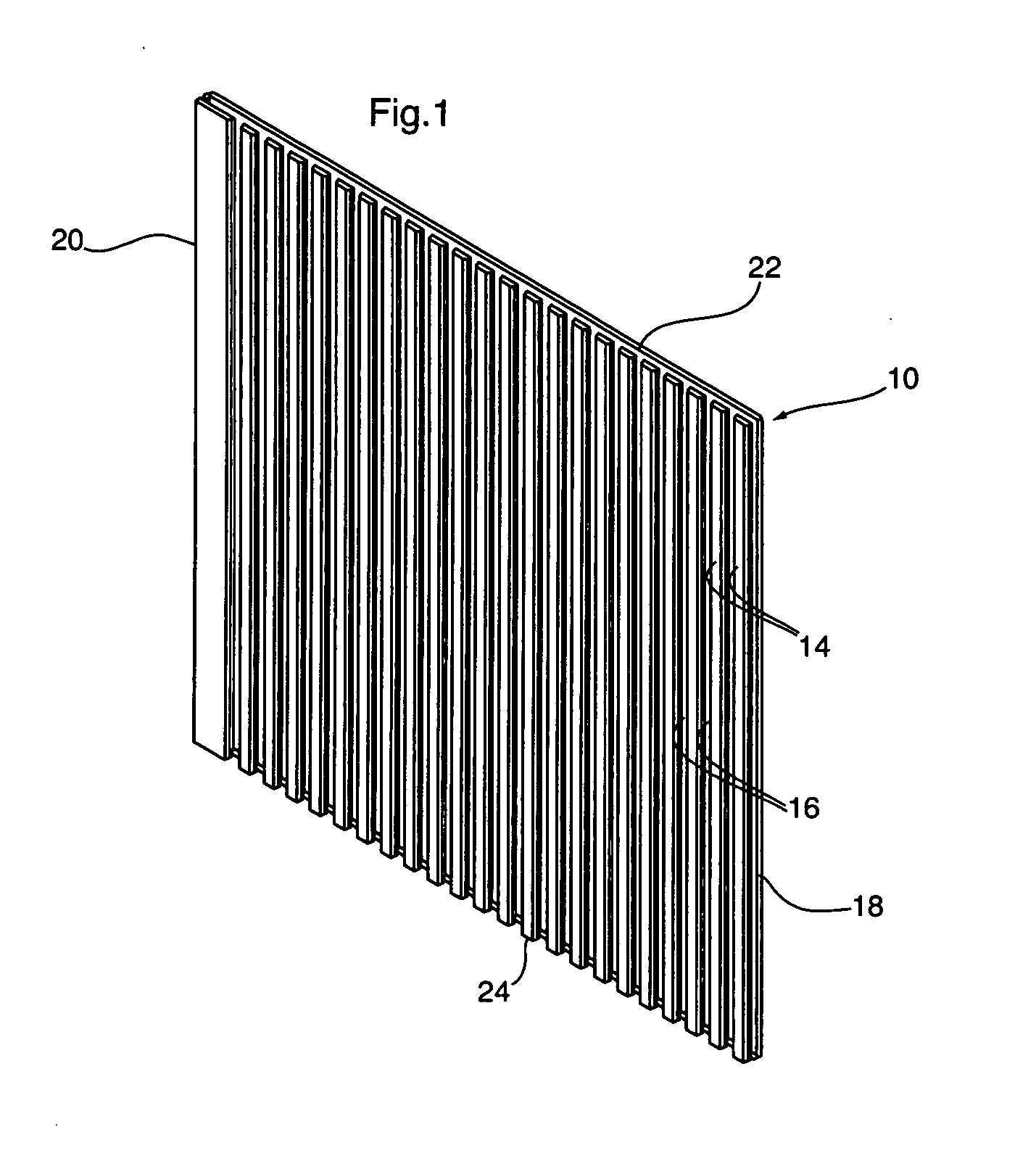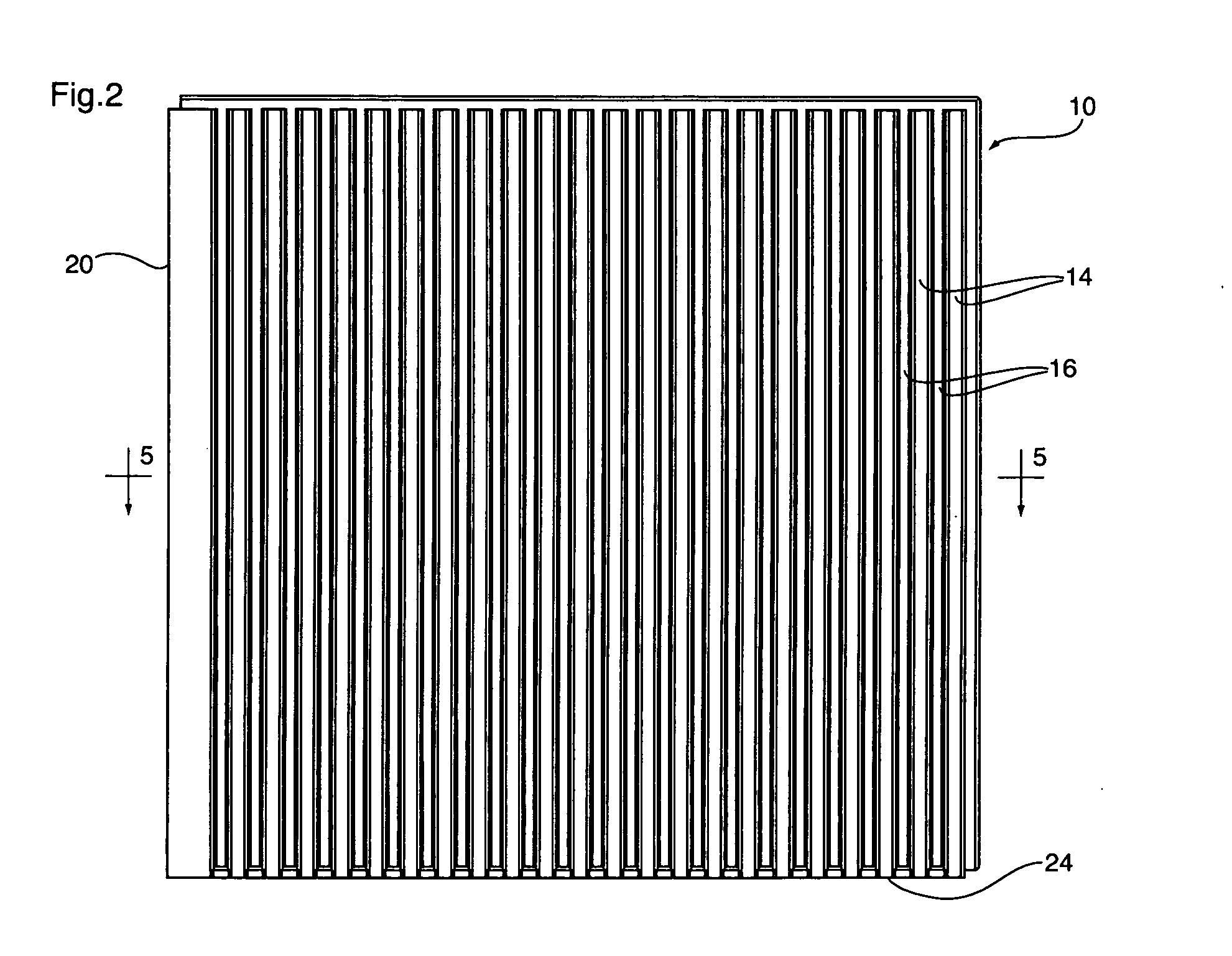Extrusion process and product
- Summary
- Abstract
- Description
- Claims
- Application Information
AI Technical Summary
Benefits of technology
Problems solved by technology
Method used
Image
Examples
Embodiment Construction
[0059]The composition of the invention comprises about 40 to 75 weight %, preferably 60 to 70 weight %, of rice husks, 0.3 to 3 weight %, preferably 0.5 to 1.5 weight %, of a coupling agent, 2 to 5 weight %, preferably 2 to 2.5 weight %, of a lubricant such as paraffin wax, or oxidized polyethylene wax, and 1 to 5 weight %, preferably 2 to 3 weight % of a plasticizer as an impact modifier such as JAYFLEX™ produced by Imperial Oil, the balance a thermoplastic polymer, such as polyolefin plastic, preferably a recycled plastic, comprising about 25 to 50 weight % thermoplastic polyolefin. The thermoplastic polyolefin may have a particle size in the range of ⅜ inch to ½ inch and the rice husks and remaining constituents are ground to a size in the range of 20 to 80 mesh U.S. Sieve Series, i.e. 0.84 min to 0.18 mm. The thermoplastic polyolefin, typically recycled thermoplastic bottles, bubble packages and the like, may be high density polyethylene, low density polyethylene, linear low den...
PUM
| Property | Measurement | Unit |
|---|---|---|
| Temperature | aaaaa | aaaaa |
| Angle | aaaaa | aaaaa |
| Length | aaaaa | aaaaa |
Abstract
Description
Claims
Application Information
 Login to View More
Login to View More - R&D
- Intellectual Property
- Life Sciences
- Materials
- Tech Scout
- Unparalleled Data Quality
- Higher Quality Content
- 60% Fewer Hallucinations
Browse by: Latest US Patents, China's latest patents, Technical Efficacy Thesaurus, Application Domain, Technology Topic, Popular Technical Reports.
© 2025 PatSnap. All rights reserved.Legal|Privacy policy|Modern Slavery Act Transparency Statement|Sitemap|About US| Contact US: help@patsnap.com



